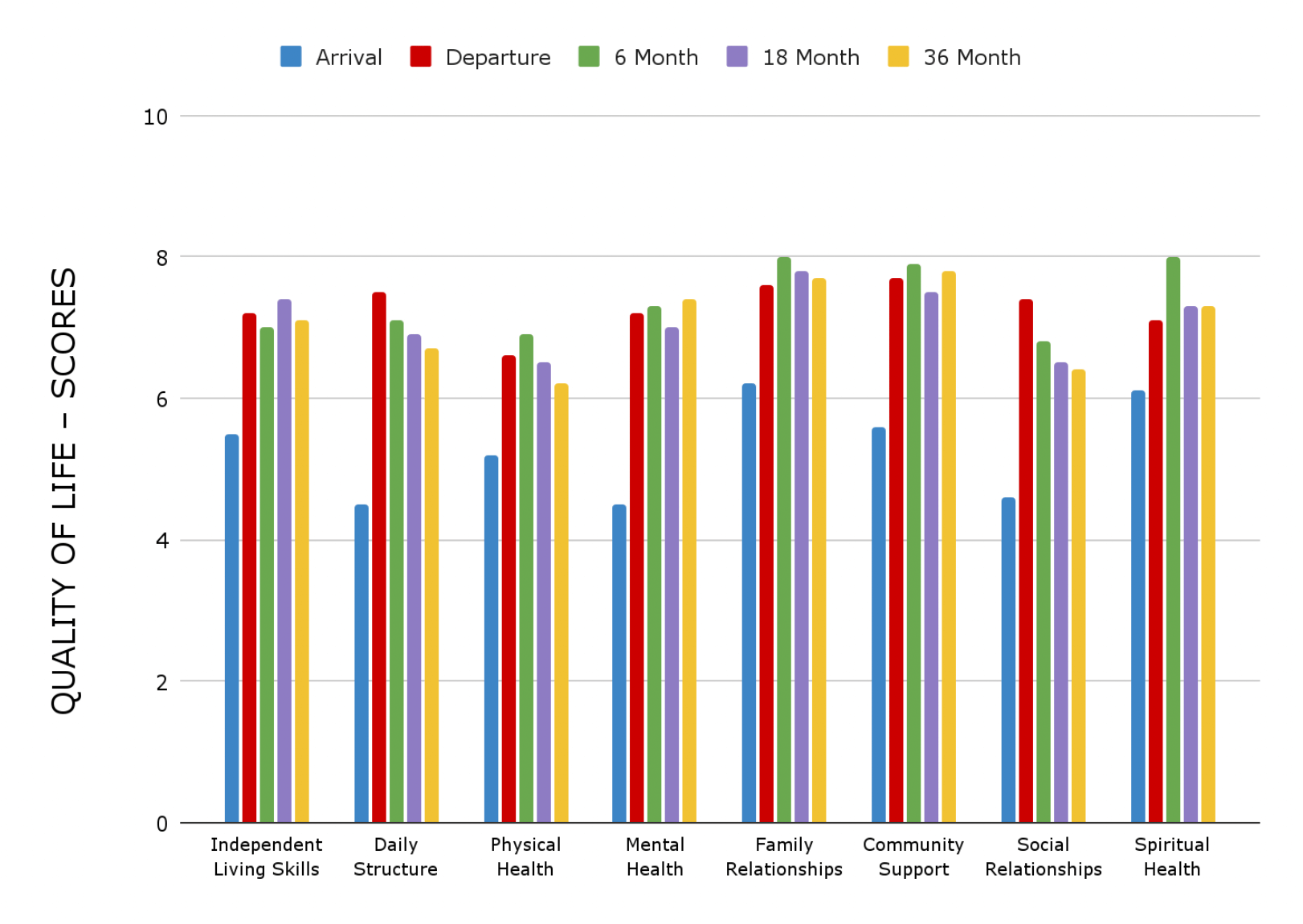The Gould Farm Impact Study is a 15-year ongoing research project conducted at their community residential treatment centre for severe and persistent mental illness.
The Gould Farm program offers a recovery-focused, milieu treatment that combines counselling and medication with a work program, providing guests with opportunities to develop daily living, social, and work skills. The guests rotate through work teams, spanning agriculture, animals, buildings and grounds, production of farm products for sale, and a café that serves the public. The treatment serves approximately 35 guests at a time. Staff and their families are an essential part of the therapeutic community and also live on the premises.

Methods
The study gathered data from 280 participants using structured interviews by external interviewers at the time of admission, discharge and at a later follow-up point. Participants had a median length of stay of 10 months. Most individuals were diagnosed with schizophrenia or bipolar disorder and had experienced multiple hospitalizations in the past.
Measures
Specific inventories were employed including the BASIS-24 scale, GAF, HSRI Quality of Life Scales, Alcohol Use Test, and the AUDIT Scale. Extensive questions on living, working, social, and mental health situations, as well as satisfaction with these dimensions of recovery were also queried.

Key Findings
The study shows that there were highly significant gains, both in symptom reductions and functioning from pre- to post-treatment. Guests reported high treatment satisfaction, with psychiatric symptoms staying at low levels following discharge. Similarly, the quality of life ratings also remained high and stable. There were low rates of rehospitalization or readmission, with low rates of substance use or abuse reported.

The study also found that treatment satisfaction was not moderated by demographic or clinical markers at admission. Most people reported stable, generally satisfying living and social situations, with the vast majority complying with medication and having established mental health supports.
These findings highlight the importance of this holistic approach to mental health treatment, including both traditional treatments and lifestyle changes. Overall, the study provides valuable insights into the efficacy of a thorough treatment program for individuals with serious mental illnesses.

Mean Self-Recorded Quality of Life
– (pre-, post-, and follow-up periods)
Following discharge, psychiatric symptoms stayed at low levels, with no notable further decreases. And treatment gains on all 8 self-reported Quality of Life dimensions were also maintained.
Gould Farm data gathered from clients
at intake, departure and beyond.
Quality of Life scores range from 1 (lowest satisfaction) to 10 (highest satisfaction).


What About Missing Data?

Studies conducted in “real life” settings found that missing data was common. Especially in studies where participation is voluntary and discharge decisions are based on clinical considerations. However, the “representativeness analyses” or representative samples found that guests with discharge data did not differ from those without discharge data on any of the demographic or clinical variables at admission. Similarly, people with at least one follow-up interview did not differ from those without any follow-ups on relevant variables at discharge. And records showed that discharge data was missing mostly due to scheduling issues versus crisis discharges or non-consent to study participation.

Conclusions
Overall, the findings of the study suggest that Gould Farm guests experienced statistically significant improvements from admission to discharge across the board in psychiatric symptoms, global functioning, and quality of life, with clinically meaningful change. Clients with various diagnoses, ages, genders, education levels, and fee levels all experienced these gains. Follow-up data to date show low rates of rehospitalization or readmission.
All indicators show that the recovery-focused, milieu treatment offered at Gould Farm is effective in improving guests’ quality of life. Psychiatric symptoms were also reduced in conjunction with treatment satisfaction increased for individuals with severe mental illness. And the strong interest in staying in touch after discharge suggests that Gould Farm’s program provides guests with a supportive community that extends beyond their stay at the farm.

This article is a summary of the findings found in the APA journal article Sustaining Outcomes Research in Residential Treatment: A 15-Year Study of the Gould Farm Program written by Heatherington, L., Bonner, B. L., Rosenberg, D., Patterson, R. D., & Linsley, J. (2019) for Gould Farm. A poster of their findings can be found here.
Eli’s Place will be a rural, residential treatment program for young adults with serious mental illness. To learn more about our mission and our proven-effective model click here.




